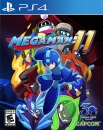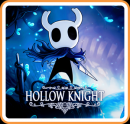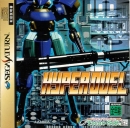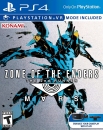AAAAAAHHH, there it is! Thanks so much for the help! ![]()
| JWeinCom said: I don't think my response was hysterical. As for Returnal... 1. Yes, and there are plenty of niche games. Like I brought up, Octopath Traveler. Not a whole lot of classic JRPGs like that, even among indie games. 2. Yes, but still there are plenty of new IPS, and a fair number of them are successful. It is more risky than using an established franchise, but it's simply not something that's so rare that doing it should elicit gasps of awe. 3. No... because your argument was about risk. Just because male games tend to sell better does not mean that any time you make a game with a female character you are taking a risk. It simply means you are not using the most common path to success, and there are reasons for doing so beyond simply taking a risk. We'll stick with Octopath Traveler. For every old school sprite based JRPG there are at least 5 shooting games that will sell more copies. Does that mean any this was a brave risk that demonstrates how much Nintendo values developer freedom? 4. I just gave a few recent examples. I'm sorry, I didn't know I was supposed to list every one. But... Groundhog Day, Edge of Tomorrow, Source Code, The Endless, Spoiler!
Astro Boy and the Omega Factor
, Majora's Mask, Spoiler!
Bravely Default
, Christmas Everyday, Happy Death Day, Spoiler!
Spoiler!
Hickman's House of X and Powers of X
, Xena Warrior Princess, Spoiler!
The Good Place
, Buffy the Vampire. Time loops are not a new idea in fiction. Kind of based off Nietzche's idea of eternal recurrence. Those are the pieces of media I've seen that invoke the idea of time loops in a pretty direct way. There are others that sort of do but not as directly (Naruto, Harry Potter, South Park, and Mass Effect or Dr. Strange for instance). I'm sure there are many other examples I didn't name (I'd be shocked if there isn't a Star Trek or Simposon's episode of that). https://www.imdb.com/list/ls069145438/ I'm sure it might add some other quirk (not watching the video cause I may buy it), but the timeloop aspect is the main one they've advertised to potential buyers, so (unless there is something so divisive in the story that it would turn people off when word of mouth spread) that's the part that would be relevant to how risky the game is. More importantly though, even if all of these examples of time loops in media didn't exist, so what? Why would this make it risky as a narrative element? Are there people that are just would hate the concept and would not buy the game because it has time loops (even though as demonstrated it's actually pretty popular in narrative ways). The fact that others have not done this exact story in this exact way doesn't mean it's exceptionally risky. More broadly, doing things that are not the norm is not inherently brave or risky. As for your assessment of my personality and motivation, you can keep those to yourself. If the argument is flawed, explained why it's flawed. I am addressing your arguments and not making any statements about you, and expect the same in return. 5. I guess charging full price for games is brave and risky now... Really the argument boils down to the fact that this is a new IP and a style of game that is popular in indie gaming but hasn't been tested in the AAA space. And sure that's a lot riskier than GTA VI will be, but to me it's not so exceptionally rare that it is noteworthy or it says something significant about a publisher willing to publish it. Which leads me again to the point that you're claiming I don't have. My point is that you have given no intelligible way to identify what counts as risky. Without that, you cannot support your claim that Sony is particularly noteworthy in their commitment to risk, bravery, and freedom, and no real discussion can be had. |
K, gonna run through the Returnal items one last time in the hopes of a breakthrough, otherwise I give up:
1. While I KINDA get what you're saying about Octopath Traveler, yes, I also just...I dunno, there's a very clear difference of overall intention there in the case of Octopath Traveler, in my opinion. I mean you know me: my favorite Nintendo game for the Switch so far is Cadence of Hyrule, so of course I was one of those people instinctively drawn to Octopath Traveler too, in no small part precisely because here was a first-party console game in the modern era that's a CLASSIC-looking Japanese-style RPG and I've liked a lot of those! ![]() And yeah, the fact that it's the classic vantage point and battle systems and everything and not modern 3D, more action-focused material and all that is prolly unfortunately a lot of the reason for the fact that the market for it hasn't been, you know, 8 or 10 million people or more, it's fair enough to say, and, at a conceptual level, I think Nintendo does deserve some credit for their willingness to support such a project. Fair enough!
And yeah, the fact that it's the classic vantage point and battle systems and everything and not modern 3D, more action-focused material and all that is prolly unfortunately a lot of the reason for the fact that the market for it hasn't been, you know, 8 or 10 million people or more, it's fair enough to say, and, at a conceptual level, I think Nintendo does deserve some credit for their willingness to support such a project. Fair enough!
That said though, when I actually sat down and played Octopath Traveler...it just felt like such a half-hearted effort, you know? The story...the character arcs...much of it just felt kinda thrown together and that's the worst quality in a game to me. I expect more from a brand like Square Enix. Octopath Traveler clearly wasn't a passion project and it also didn't fail relative to expectations. At the end of the day, Octopath Traveler is a first-party game with an entrenched, major developer that was kinda thrown together and reliant on the familiarity and reputation of the Square Enix brand more than its own merits for success and achieved some success largely on that basis. Returnal to me feels more like an indie passion project overall that actually got the resources needed to be optimally realized but that just didn't work out commercially. It was made by this former indie developer and would've been an indie game like nearly all other roguelikes are if not for the resources provided by Sony. That's what I would say is the difference.
2. You're missing my point. You're taking individual elements I was highlighting totally separately from one-another. No, any one of these elements I'm highlighting is not that radical by itself, but when you put them all together, they kind of add up to something fairly daring. At least I think so anyway.
3. How did we get from a discussion of representation back to Octopath Traveler? ![]() I don't even understand your argument here. I pointed out that games narratively centering women fare worse overall commercially in a male-dominated market, to which you're like "Yeah, so? Just because they sell worse doesn't mean they might sell worse. Octopath Traveler!" To paraphrase.
I don't even understand your argument here. I pointed out that games narratively centering women fare worse overall commercially in a male-dominated market, to which you're like "Yeah, so? Just because they sell worse doesn't mean they might sell worse. Octopath Traveler!" To paraphrase.
4. Okay, when we're citing Majora's Mask and the movie Groundhog Day as comparisons, it's very clear that there's more miscommunication going on here. When I'm talking about the story structure and themes at work here, I'm not talking about the game's genre (that was discussed back in point 1), I'm talking about...its story structure and themes, not the death loop style of game play. Separate thing. I guess it does help to play the game to grasp what I'm talking about here, but you could get a basic idea from many video reviews, or just from the story overview I linked you to. Thematically, the game is narratively about navigating a particular form that trauma takes and its metaphors for that are absolutely brilliant. In terms of narrative structure, it's like a big puzzle that you have to piece together and may not get all of even after completing multiple playthroughs. Players still often disagree about what characters are being shown in certain key scenes and which characters they are makes a huge difference in terms of what message one draws from said scene and it seems to be that way intentionally. Subjectivity distributed in just the right places to really make you think, even after you've completed multiple playthroughs. Well, I think it's pretty cool anyway!
(And anyway, even if I had been talking about the game's genre again here in point 4, it still would say something that your case is built on movies and TV shows for some reason and on games for old handheld systems and home console titles that are more than two decades old. My point back in point 1 about Returnal's genre choice being a rare one in the AAA landscape absolutely stands!)
5. I have done nothing but complain about the unexpectedly high pricing of this game. Maybe it's just that I'm still not used to paying $70 for any games, let alone for material like this, but I was taken aback by the price tag as much as most professional reviewers were, frankly, in much the same way that I was likewise taken about by the $60 price tag that's been attached to the 2D Metroid Dread. The material in question begets certain pricing expectations. $70 for a game like this seems excessive and greedy to me and I'm pretty sure was a major factor in Returnal's commercial failure. I'm NOT defending Sony on this point and I don't get why you're acting as though I am.
As to the rest, look I'm trying to objectively describe things that are, at the end of the day, a little relative and subjective by nature, like what the intention of content creators is and whether those intentions feel sincere to me as a player. I'm doing my best, okay? I think I've made my case for why Sony was indeed taking a real chance on Returnal as an example. I've authored God knows how many posts explaining at great length what I find unique and special about The Last of Us Part II that makes it much more than just another sequel by an established developer and publisher and have spoken some on what I see as the very distinctive merits, and relevance, of Death Stranding as well in the past. I don't know what else you want from me.
It was also not my intention to suggest that Nintendo NEVER works to appeal outside of their fan base or that they NEVER take real creative risks on the actual software side of the equation or what have you. People have really gotten hung up on the overall brand difference I sought to describe in one paragraph of the OP to the neglect of my main point about hoping that Sony will continue to support more games that are as bold as Returnal (or Death Stranding, or TLOU2) in what they seek to bring into the AAA landscape in the wake of these more radical games yielding only so much profit compared to somewhat more conventional open world type investments like Ghost of Tsushima and the Spider-Man games. The Nintendo comparison was an aside that I drew on only to help get that point across. Matter-of-factly, it should be self-evident (<--<--) that I don't dislike Nintendo as an institution.
Last edited by Jaicee - on 27 June 2021























































